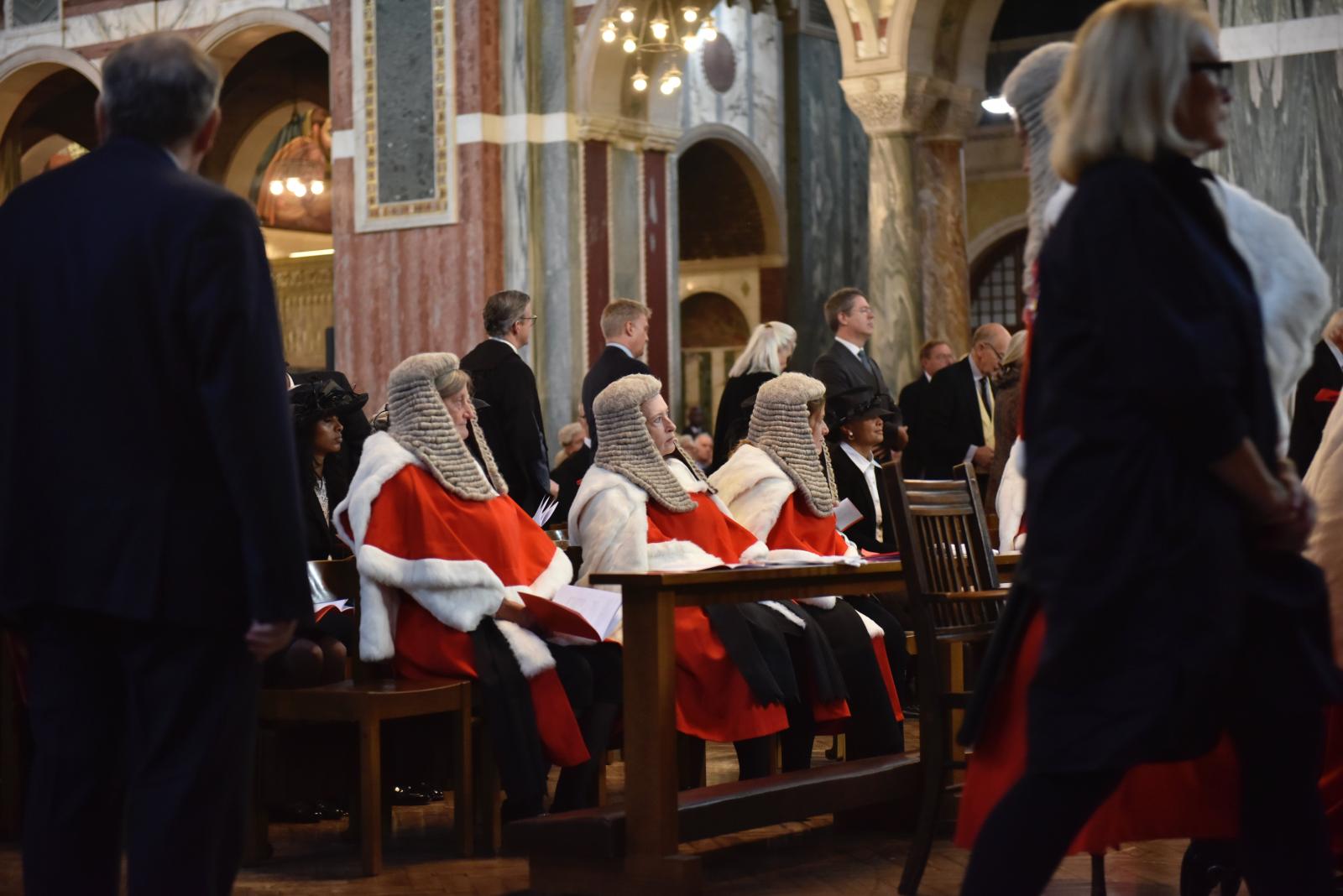Given at Westminster Cathedral on 1st October 2024, for the Red Mass which marks the beginning of the legal year.
Dear Friends, sometimes we can find the heart and the words with which to pray, but there are other times when, in the words of the Book of Lamentation, and echoing Isaiah’s cry for justice tempered with mercy all we can do is put our mouths to the dust and wait.
The poet, Rainer Marie Rilke, once gave this advice to a person who had written to him, lamenting that in the face of a devastating loss he was so paralyzed that he did not know what he could possibly do with the pain he was experiencing.
Rilke’s advice: Give that heaviness back to the earth itself, the earth is heavy, mountains are heavy, the seas are heavy. In effect: allow your anguish to be your prayer.
Notwithstanding the PM’s efforts to cheer us all up, there is a perceptible weariness, heaviness and anguish in our world. We witness daily to the continuing agony of the peoples of the Middle East, Central Africa, Ukraine, Sudan and so many other places. We see the displacement of so many women and children who can no longer call the place of their birth home. Transnational borders are acquiring a new definition. The international community, whether with the UN or via other channels, struggles with the legality of the consequences of these conflicts and tries to bring some prudent judgment to bear whilst urging restraint.
The riots which we in the United Kingdom witnessed in August, fed as it was by despicable ‘fake news’, unsettled our nation. The judiciary was deployed quickly to uphold the law and administer justice, restoring a stability that is needed if the human person is to flourish.
This was the law restoring order. We know of course that justice and law do not always go in hand in hand in some jurisdictions. Discussions over jurisprudence become relevant here. But such episodes of public disorder of course are not new. One only has to look at our own history. We can recall the Titus Oats conspiracy and the Gordon riots. Equally fed by fake news.
Every person lives and dies with a certain sense of an insatiable hunger for justice. This hunger reflects a deeper yearning for divine justice, which ultimately finds fulfilment in God. The legal community is called to be a mirror of justice, reflecting God's own justice in their dealings and decisions.
The beginning of the legal year, marked by this Red Mass, and the service in the Abbey with their invitation to prayer and plea for the guidance of the Holy Spirit, serves as a profound moment for reflection on the interplay of law, justice, and faith. This occasion invites you here present to renew your commitment to the principles of truth and justice, which are foundational to your vocation.
Moreover, this act of worship, this Mass, is a reminder of the moral responsibilities that come with the administration of justice. The Church’s teachings highlight that justice is integral to peace; without it, conflicts arise, and the strong may dominate the weak.
Law, St. Pope John Paul II once remarked, should not become a "juridical bottleneck" but rather a means to facilitate the salvation of souls. You deal with fragile, broken wounded persons. No more so than in the family courts that expose human frailties and pains - as Pope Francis also reminds us.
To those touched by the Life, Death and Resurrection of Jesus of Nazareth you will hear a call to approach your legal duties with compassion and a commitment to the common good, ensuring that justice serves to uplift rather than oppress.
St Pope John Paul II, in an address to the Tribunal of the Roman Rota, emphasised the intrinsic relationship between truth and justice. He reminded us that justice is not merely a set of rules but a reflection of divine truth, urging legal practitioners to aspire to embody this truth in their work.
He stated, “Love for the truth must be expressed in love for justice and in the resulting commitment to establishing truth in relations within human society.”
The teachings of the Church also remind us that justice is a virtue that transcends human limitations.
Justice involves respecting the rights of others and fostering harmony in human relationships, promoting equity and the common good. Justice is a social virtue, essential for creating communities where every person is treated according to their innate dignity.
Justice is not merely a human convention but is innately connected to the dignity and rights of each person, which are inherent and God-given.
Justice is a multifaceted virtue that governs interpersonal relations, ensuring that individuals receive what is rightfully theirs while promoting the common good and the dignity of all persons.
You, as advocates and judges, give a voice to those who seek justice, truth and right. Sometimes you are the only voice a person has. Our legal system is no doubt under immense pressure, financial, political and from the high expectations the public have of what can be delivered.
In this Mass, we are not just enacting an arcane ceremony.
Today is an opportunity to seek divine guidance in your noble work, ensuring that your actions contribute to a just society that honours the dignity of every person from their conception to their natural death. After all, no person and no institution, including the state, should be above the law. But for all people to be equal before the law there must be equal access to the law too.
As we embark on this new legal year, I pray we may all be inspired by the teachings of Christ and his Church to uphold justice as a reflection of God’s love and truth in the world. Thank you, for all you do to make and render it so.
